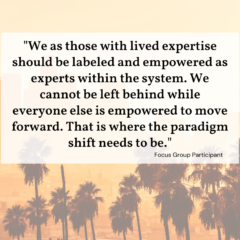Essential services like emergency food and shelter, affordable housing support, and wraparound services are delivered by complex, localized networks of organizations. Individuals who need these services often experience a complex array of interrelated challenges and barriers.
Redstone works shoulder-to-shoulder with local leaders, blending evidence-based analysis with community engagement and collaboration to advance service delivery networks toward more human-centered solutions.
We customize our support to meet community and client’s needs, helping clients identify and use data and metrics about those in need to guide service provision; build decision-making tools to allocate resources according to demand; and innovate in areas where there are gaps. In many cases, we work closely with clients to build coalitions of local funders and service providers to develop and execute these approaches.
Over the last 10 years, through dozens of projects, we have supported philanthropies, nonprofits, and public sector leaders in charitable food, homelessness, housing, foster youth, and other fields to achieve transformational long-term impact.
- To improve equity of the charitable food system, the New York City Food Assistance Collaborative built the infrastructure to distribute 16 million more pounds of food each year to food pantries. Redstone helped design the Collaborative, and supported its launch by performing geospatial analyses, engaging community members and food pantry managers, and developing strategies for neighborhood capacity-building.
- To create a coordinated and strategic response to homelessness, the Committee for a Greater Los Angeles has been recalibrating the regional governance structure. Redstone helped develop a pragmatic plan of action founded on an inclusive strategy that engaged focus groups with lived experience and laid out specific steps to improve homelessness governance in Los Angeles.
- A major foster youth funder supported advocacy that put the youth themselves at the center of the services they receive. Redstone worked with current and former foster youth, their caregivers, advocates, and service providers to identify the policies and practices most important to foster youth, as well as how philanthropy could help change the foster youth system to work for the youth themselves.
- To promote dignity, a coalition of technologists, service providers, and advocates in Metro Denver launched a technology ecosystem to connect community members to local food resources. Redstone helped to design the initiative, convene local stakeholders, develop technology prototypes, and engage food insecure individuals.


